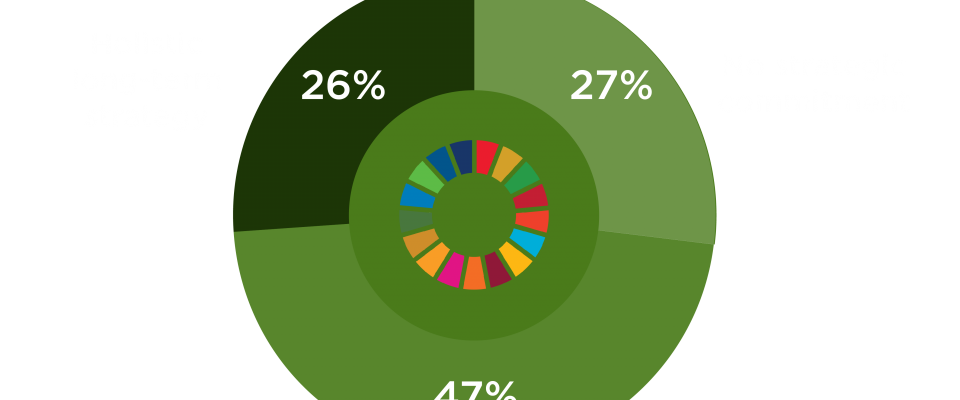Key finding
Sustainability strategies are a crucial first step

We recognise governance and strategy as the cornerstone of companies’ action towards conducting more responsible business. However, our indicators are at this stage analysing high-level expectations of what companies should be doing around this topic, by setting the minimum requirements to achieve the systemic transformation needed.
Remuneration insufficiently linked to sustainability targets
From our analysis we see that there is little correlation between high performance on this measurement area and an overall high performance in the benchmark. Out of the companies with the best performance in formulating a sustainable development strategy, the average score is around 35/100, showing that while companies are taking the first steps towards identifying the topics where they have the most material impact, more action is needed to translate these strategies into measurable results.
From the 350 companies assessed, 55 companies are linking their top management remuneration policy to performance around sustainable development metrics, of which five companies are going even further and linking remuneration to sustainable development metrics across all three benchmark dimensions (environment, nutrition and social inclusion). This is an important step in acknowledging sustainable development topics are as essential as other, more operational, performance metrics. While only highest governance body and executive compensation were evaluated, the aspiration is that eventually, remuneration linked to sustainable development matters is cascaded across the organisation, much like financial performance.
Stakeholder engagement largely overlooked as a tool to drive change
Only 18 companies in scope and a quarter of the top-ranking companies are conducting stakeholder engagement in a holistic, consistent and strategic manner. The expectation around this topic is that companies establish an ongoing dialogue with relevant stakeholders. These are selected through a careful process of identification considering how they are impacted by the company’s activities, both negatively and positively. However, in many cases, stakeholder engagement is still seen as a one-off process and its feedback rarely makes it into the company’s strategy.
As we head towards the 2030 ambition deadline it is imperative that companies build stronger and more robust strategies that identify process and integrate governance and stakeholder engagement at the core. Holding oneself to account and identifying your role is crucial in collectively realising the SDGs – something that companies need to vastly improve by the second iteration of our benchmark in 2023.
